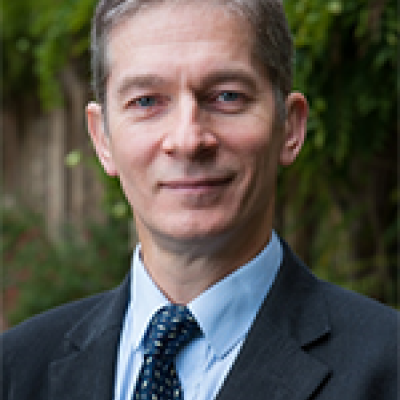Conservation Comes Full Circle: A Master's Field Course in Tenerife, Spain
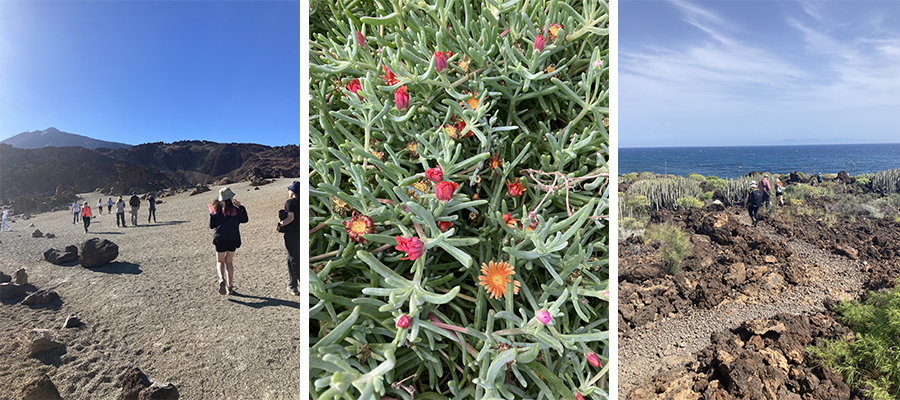
Raphaella Mascia, postgraduate student on the MSc in Biodiversity, Conservation, and Management (BCM) course, recounts her experience on the Tenerife field trip and the importance of positive conservation outcomes.
Stepping off the plane, the sun hit our eyes, an unfamiliar experience after studying in Oxford over the past winter months. It was also an unfamiliar sun to many of us; we had arrived in a new place - the island of Tenerife, a Spanish Canary Island, to study the island's biodiversity and conservation initiatives. As my fellow course mate, Haoran Wu mentioned, "The first thing I noticed was the sunshine. We were not in Oxford anymore."
The nine-day Tenerife field trip is one of the highlights of the School of Geography's MSc in Biodiversity, Conservation, and Management (BCM) course. According to Professor Rob Whittaker, one of the co-founders of the field course, the trip began during the 2003/2004 academic year, proceeding several momentous changes to the conservation management of the island.
He said: "In 1987, the first legal instrument to create a protected area on Tenerife was put in place. Then in 1994, the government established a formal management plan for the island. So, [at the start of the program] we were at the cusp of studying the planning, structuring, and implementing of management practices for a protected area, which was a really amazing opportunity."
Year after year, Professor Whittaker and the other organizers have optimized the course to be expansive in both content and in experience. We explored desert-like habitat on the top of the Mount Teide volcano, the highest point in Spain. We learned about palms at the Palmetum Santa Cruz, which is constructed on top of an old landfill and continues to neighbor surrounding industry. We witnessed the regrowth of laurel forests in Anaga rural park, whose management seemed "to really listen to the needs and wants of the people," in the eyes of my fellow BCM course mate, Anka Stankovic.
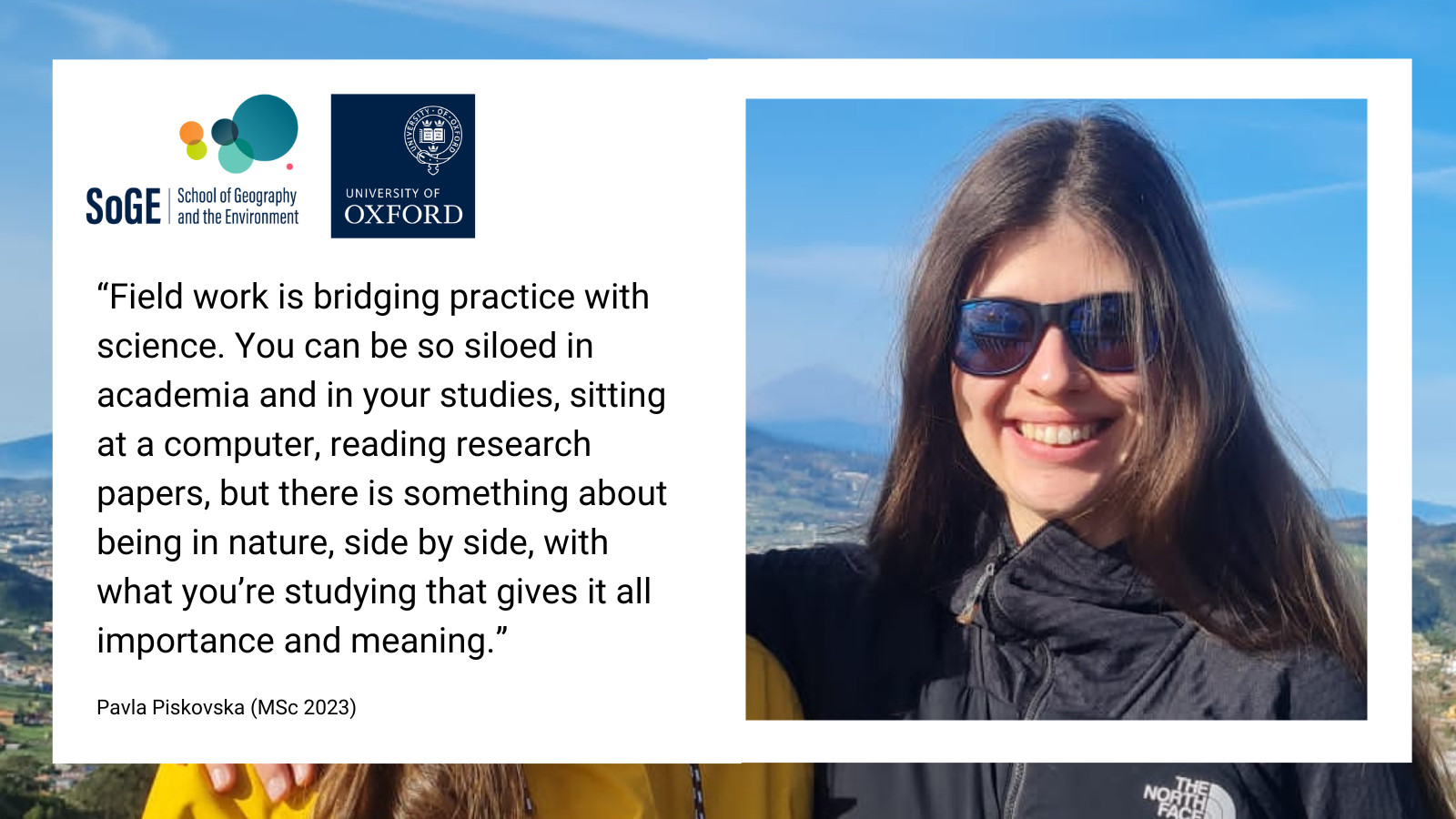
"Fieldwork is bridging practice with science. You can be so siloed in academic and in your studies, sitting at a computer, reading research papers, but there is something about being in nature, side by side, with what you're studying that gives it all importance and meaning."
Pavla Piskovska (MSc 2023)
The lengthy time of the program's existence adds to the course's ability to deliver both depth and breadth in its educational experiences. These relationships, with the place of Tenerife and with the people involved in conservation efforts on the island, repeatedly revealed themselves to us during the trip.
For instance, we did not just visit the restoration site of a thermophilous woodland located in Tenerife's Teno Rural Park. Instead, we monitored the restoration project alongside other master students studying ecology at the University of La Laguna in Tenerife. Together, with the La Laguna students, we encountered what it means to do fieldwork with the elements against you; as the rain and heavy wind pelted our faces, we crawled under small olive trees, still only bushes, to measure trees' diameters.
Another example-we learned from local eco-tourism expert, David Novillo, founder of Oceano Sostenible, a local business that engages nature-minded Tenerife tourists with marine preservation initiatives. It was one particular success story, Novillo's diving project to manage invasive sea urchin populations, that stuck with many of us master's students.
Fellow BCM student, Pavla Piskoskva said: "For all of us in conservation, the positive stories make all the difference to us. The success stories really mean something. I mean he [David Novillo] is lucky because he was working with a charismatic species like sea urchins and other marine life, but still, the work he did was extremely impactful."
This need for success stories emphasized by Pavla, directly expounds upon what Professor Rob Whittaker views as one of the main take-aways of the field course-that doing conservation work in the field, in communities, and alongside others, is complicated but it is also extremely worthwhile.
As Professor Rob Whittaker said: "If you have committed enthusiastic people who are armed with good science, in the broader sense, then it is possible to have positive outcomes. It's really important to take a positive message from it." And taking a positive message from our field course, we did.
Aside from the fieldwork itself, we gained a profound appreciation for the people and the life on the island. While our professor Rob Whittaker reminded us throughout the field course, "This is not a holiday". Some of us couldn't help but realize-amidst the pauses in the day to search blue skies for blue chaffinches and examine native euphorbias which cling to cliffs precipitously over peaceful waters-the awe-inspiring natural beauty of Tenerife. As Haoran Wu commented: "I understand now why Tenerife is such a nice holiday spot."
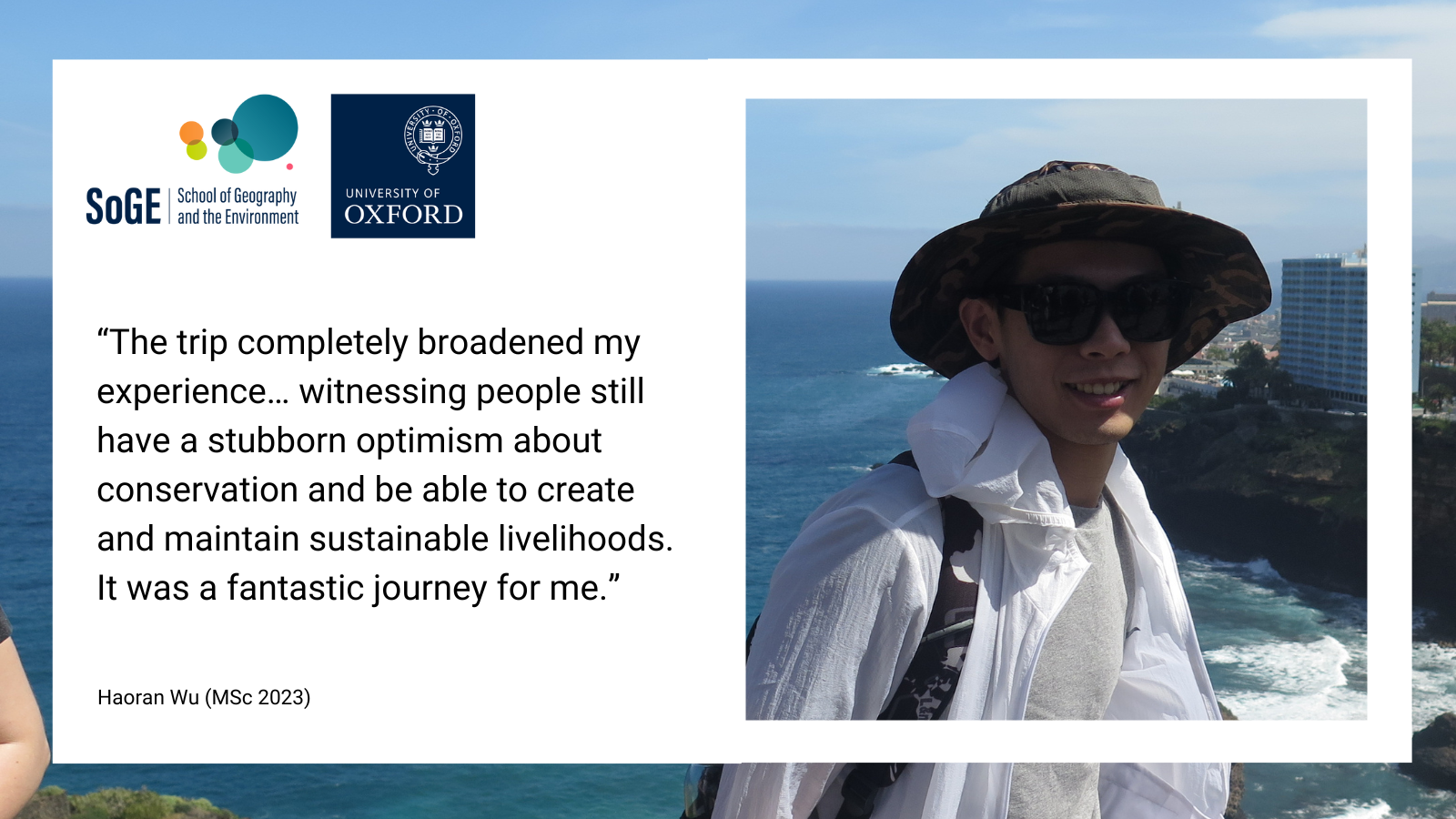
"The trip completely broadened my experience... witnessing people still have a stubborn optimism about conservation and be able to create and maintain livelihoods. It was a fantastic journey for me."
Haoran Wu (MSc 2023)
And in a way, our fieldwork came full circle. We came to understand both the draw to the island, from the tourists and development, and why we need to protect it. Delving into the diversity and complexity of a small, beautiful island, we got a better, more detailed picture, of both the cause and the effect of our work as conservationists.
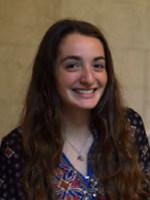 Raphaella Mascia is a School of Geography and the Environment Science Writer and graduate student studying for an MSc in Biodiversity, Conservation and Management.
Raphaella Mascia is a School of Geography and the Environment Science Writer and graduate student studying for an MSc in Biodiversity, Conservation and Management.
Conservation Comes Full Circle: A Master's Field Course in Tenerife, Spain
Raphaella Mascia, postgraduate student on the MSc in Biodiversity, Conservation, and Management (BCM) course, recounts her experience on the Tenerife field trip and the importance of positive conservation outcomes.


